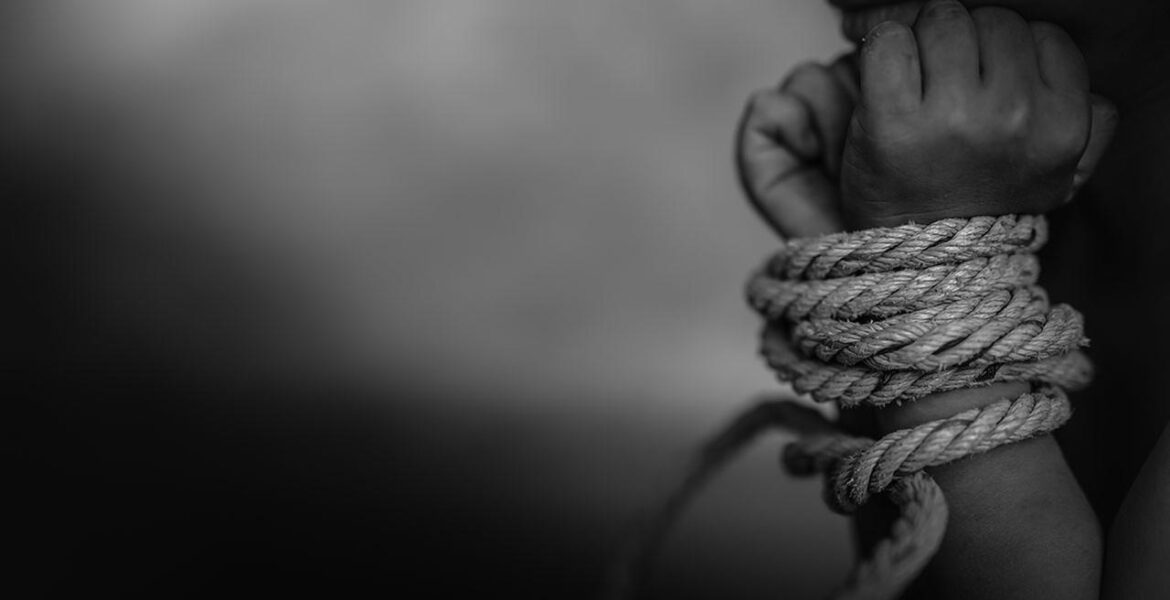DITSHWANELO says Botswana’s Tier 2 means the government does not fully meet the minimum standards for elimination of trafficking
The Botswana Centre for Human Rights and the Botswana Domestic Workers Association join the world to commemorate World Day Against Trafficking in Persons on 30 July 2022.The theme for this year is “Use and Abuse of Technology.” It focuses on the role of technology as a tool which can both enable and impede human trafficking.
Technology
Trafficking in persons means “the recruitment, transportation, transfer, harbouring or receipt of persons by means of the threat or use of force or other forms of coercion, of abduction, of fraud, of deception, of the abuse of power or of a position of vulnerability or of the giving or receiving of payments or benefits to achieve the consent of a person having control over another person, for the purpose of exploitation”.
Technology enables traffickers to operate internationally across jurisdictions and to escape detection with great ease. Traffickers use social media to identify, groom and recruit victims; use e-mails and messaging services to morally coerce/put emotional pressure on victims; and use online platforms to widely advertise services ‘provided’ by victims.
Traffickers target potential victims through advertising fake employment or scholarship opportunities with the purpose of exploiting victims through forced labour or sex trafficking.
Protocols domesticated
Botswana signed the United Nations Convention Against Transnational Organised Crime (2000) in 2002. Its protocols are aimed at preventing, suppressing and punishing trafficking in persons, especially women and children, and are against the illicit manufacturing of and trafficking in firearms, their components and ammunition.
Both of these protocols have been domesticated or incorporated into our Botswana law through the Anti-Human Trafficking Act of 2014. Botswana drafted an amendment Bill to the Anti-Human Trafficking Act in 2022. It was shared with different key stakeholders through workshops conducted by the-then Ministry of Defence, Justice and Security at various locations in Botswana.
Botswana is currently ranked on Tier 2. This ranking reflects an assessment that the government does not fully meet the minimum standards for the elimination of trafficking in several key areas.
Minimum standards
According to the USA Trafficking Victims Protection Act of 2000, the minimum standards are:
- the government of the country should prohibit severe forms of trafficking in persons and punish acts of such trafficking;
for the knowing commission of any act of sex trafficking involving force, fraud, coercion, or in which the victim of sex trafficking is a child incapable of giving meaningful consent, or of trafficking which includes rape or kidnapping or which causes a death, the government of the country should prescribe punishment commensurate with that for grave crimes, such as forcible sexual assault;
for the knowing commission of any act of a severe form of trafficking in persons, the government of the country should prescribe punishment that is sufficiently stringent to deter and that adequately reflects the heinous nature of the offense; and the government of the country should make serious and sustained efforts to eliminate severe forms of trafficking in persons .
We urge Botswana to ratify the Optional Protocol to the Convention against Torture and other Cruel,
Inhuman or Degrading Treatment or Punishment. Human trafficking leads to torture and other cruel,
inhuman or degrading treatment or punishment. These include child labour and sexual exploitation.
Instrument to ratify
Ratifying and domestication of this instrument will ensure that laws which may prevent this crime are enacted and implemented.
We urge the government to increase its efforts to investigate, prosecute and convict traffickers. This can also be ensured through public awareness campaigns to effectively inform the public about human trafficking and about measures which can be taken to protect themselves and others from human trafficking.
The government should develop guidelines to assist the public to identify potential victims of trafficking from amongst the most vulnerable communities, including unemployed women, men and others, undocumented migrants, agricultural workers and orphans.
We encourage our African governments to improve on-line confidential reporting mechanisms, to facilitate anonymous reporting of cases of trafficking in persons as well as victims’ self-identification. Online tools such as Chat, chatbots, and instant messaging functions could be valuable in helping us to collectively engage in protecting others and in reporting human trafficking.

